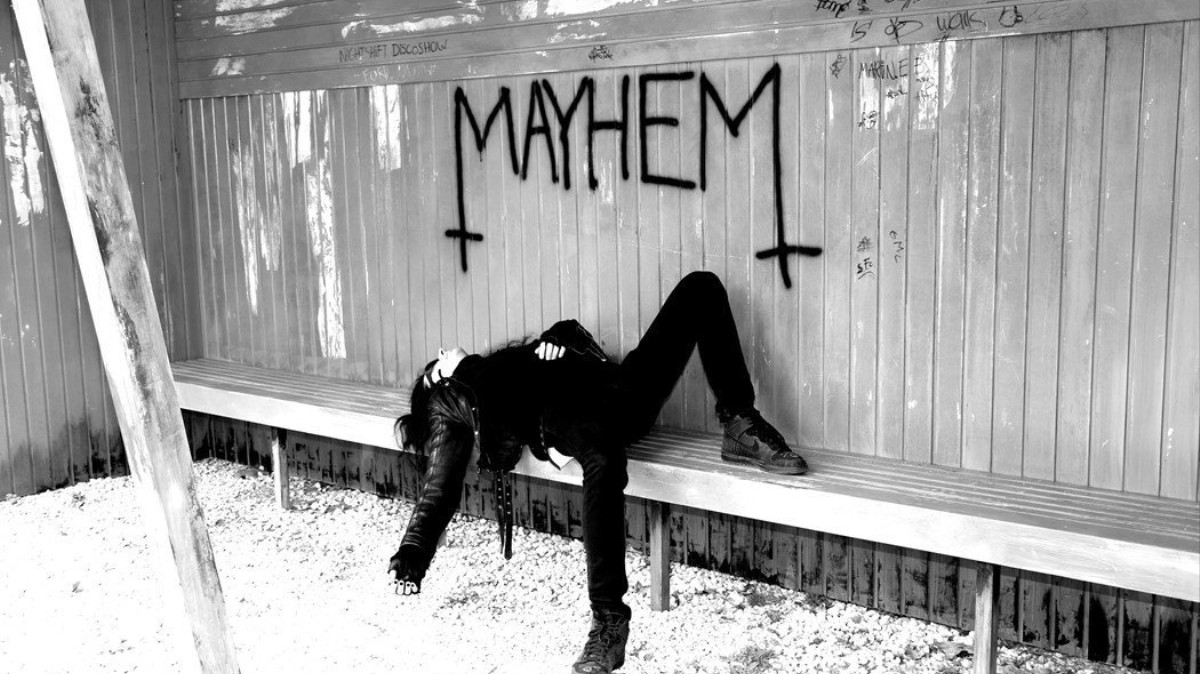The feelings I have about this movie are wildly conflicting. I will admit, I am and never have been a true metalhead, despite my definite emo stage in middle school and its lasting effects on my taste in music. Perhaps I am too normal, too sheep-like to avoid being led by the church instead of following Satan’s call to spread evil and darkness and death, working as an autonomous agent of wickedness. Or at least that is the message I derived from Lords of Chaos.
In any case, while unbothered by the music in the movie, its off-putting, irreverent (almost darkly comedic, and sometimes positive) portrayal of depression and suicidal tendencies was a major misstep on director Jonas Åkerlund’s part. Dead’s (Jack Kilmer) suicide scene was overacted to the point of comedy. The concert scene where he began cutting himself on stage was glamorized, the lights casting a devilishly vibrant glow on the room, and the crowd’s engagement with the bloodshed (not to mention the disturbingly erotic contact with the pig head) was sickening. Though the depressed and suicidal should not be watching this film to begin with, even those unafflicted by such mental illnesses would find this deeply unsettling and beyond inconsiderate.
It is hard to say whether my reaction is what Jonas Åkerlund intended, or what the members of Mayhem intended. Still, even if he was only reflecting the evils that did actually take place in their concerts so as to tell the band’s story truly, this does not have to extend to Dead’s suicide. That was a private event, the darkest moment in a series of dark moments that he had in his life. If it really needed to be so graphic, the acting could have been less ridiculous.
Yet even considering the superfluous violence, much of this movie was almost lovingly made, earnestly redeeming itself as legitimately beautiful and complex. The churches they burn are all gothically intricate, the fires coloring the air like liquid paintbrushes. There is a complicated, gradual exchange of character between Euronymous and Varg as we realize Euronymous’s capacity for gentleness and Varg’s capacity for psychosis. We grow to understand the danger in a performance of evil: how deeply it can affect the performer and his audience. There is a question posed, a question of where we draw the line between performance and reality, a lifestyle and the endangerment of others, freedom of belief and deeper mental instability, a call to action and a call for help.
The quality of a movie is heavily dependent on how much it makes the viewer feel, the range of emotion it can elicit. In those terms, this is a good movie, an effective movie. Although I hated it, it is important in the issues it explores, and so I must tip my hat to Jonas Åkerlund’s work.
If you would like to be as emotionally confused about this movie as I am, you can rent or buy it on a variety of sites like Amazon or Vudu and watch it at your leisure. Make some popcorn, a cup of tea, and settle in with a soft blanket. Good luck.




